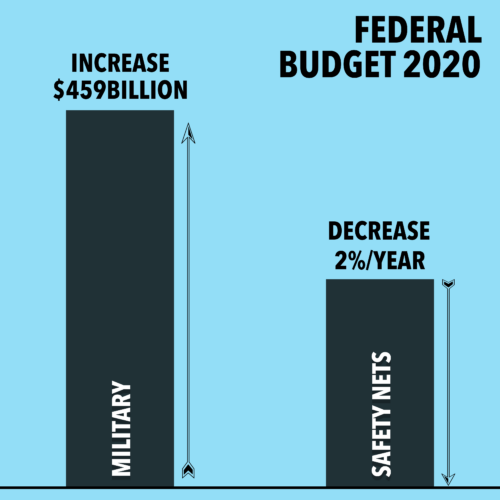Psalm 51:1–17
As a queer person reading Psalm 51:1-17, it can feel triggering to encounter so much language about sin and being “born guilty, a sinner when my mother conceived me,” particularly because the Psalmist isn’t speaking about one specific sin; but, rather, identifying that they are in essence, a sinner. Those of us who are LGBTQIA+ are likely all too familiar with what someone usually means when they want us to confess or repent of the “sin” of being ourselves.
Before my gender transition, I was one of the most visibly queer-identified people on my college campus. Whether it was my lesbian rock band t-shirt, my shaved head, my androgynous appearance, or holding hands with a woman, I was often the target of comments, stares and, sometimes, overly eager Campus Crusaders. I always knew when one of the evangelical campus groups was finished with their meeting because someone full of the Lord would march right up to me and ask, skeptically, if I knew Jesus. The assumption they made, of course, was that as a queer-looking and identified person, I couldn’t possibly have a relationship with God. It was as if my repentance would be worth double coupons to God if I would only give up myself.
While I could generally brush off those encounters because I was a life-long Christian, a Religious Studies major, and a self-confident queer person, the idea that whole faith communities assumed my sinfulness was because of my sexuality broke my heart. My heart broke not just for myself, but for all the LGBTQIA+ folks who were told by more than just strangers on the campus quad that their ultimate sin was their sexuality or gender identity. Too many friends had been made to feel ashamed because of who they were in God’s eyes by their families and churches. My heart also broke for those in the evangelical campus clubs. The rules they lived by weren’t built to experience the fullness of the diverse, beautiful community that surrounded us.
Reading Psalm 51, you can almost hear the Psalmist crying out in pain. The Temple has been destroyed, and with it, the sanctioned method for finding absolution from God by providing a burnt sacrifice is no longer possible. At the beginning of the text, the Psalmist is crying out for mercy and to be cleansed of their sins, while also wrestling with how they might appease God enough to receive an expression of God’s love if they cannot offer a sacrifice.
As LGBTQIA+ people, we also know the depths of this pain in a world that has us feel ashamed for who we love or how we yearn to be seen. So many of us have cried out to God to change hearts, minds, and sometimes even ourselves. The deepest pain comes from thinking that we are the ones who need to change, rather than the very system that would deny the fullest expression of ourselves as not beloved or created by God. Too many of us have been made to believe that we must make ourselves into a burnt offering to please God — to burn away the very truths of how God created us.
Thankfully, the Psalmist realizes that God has “no delight in sacrifice; if I were to give a burnt offering, you would not be pleased” (Psalm 51:16). What then is a more acceptable sacrifice? The Psalmist offers us an interesting clue, “The sacrifice acceptable to God is a broken spirit; a broken and contrite heart” (Psalm 51:17). On Ash Wednesday, as we receive a mark of the cross on our forehead made of ash, we are reminded that we have come from dust, and to dust we shall return (Gen 3:19). As we bear the ashen cross, we are confronted with a reminder of our mortality and asked to recognize and confess the ways we have fallen short of the vision God has for us.
To me, Ash Wednesday is ultimately a reminder that we are alive, we only have a limited time on this earth, and that we are human, and to be human is to get it wrong sometimes. I don’t know if you’re like me, but when I realize I’ve caused someone harm with my words or actions, my heart breaks for the pain I’ve caused. As I witness systems causing pain and oppression to myself or others, my heart breaks for the broken premise and promise of what those systems were built to do and the lives they claim along the way.
With the amount of trauma, pain, and injustice in the world, it would be easy to spiral inwards with our broken hearts, to seal off the places where our hearts have broken so that we don’t have to feel that tender pain anymore. Unfortunately, sealing off that brokenness can lead to a numbness that blocks the more positive emotions in our lives. I don’t believe this is what God wants for us. The Psalmist shares, “You desire truth in the inward being; therefore teach me wisdom in my secret heart” (Psalm 51:6). Reading this Psalm, I wonder, what if Ash Wednesday is also about looking directly at the places where our heart has broken, not from a place of fear or judgment about that brokenness, but with a curiosity for the truths and wisdom we have gleaned through those experiences?
The last years before I began my gender transition were some of the most painful in my life. I wrestled with shame, internalized transphobia, fears of being vulnerable enough to come out, and the grief of what I might lose by doing so. I now know that along the way God was teaching me wisdom in my secret heart about my own inner-strength, the depth of trust I could have with my partner, my family, and my community as I came out, and relationships I would develop as a result of my vulnerability about my journey. My broken heart led to a more authentic me and gave me a deep well of empathy for others facing their own obstacles to a leap of faith. My broken heart over the experience I had in college being a visibly queer person on that campus taught me empathy for people struggling to figure out who they were and how to live that out in community.
The Psalmist proclaims that with the wisdom of their secret heart, and a renewed spirit they will “teach transgressors your ways, and sinners will return to you” (Psalm 51:13). I believe the Psalmist is saying, we do not have to confront our sins and our broken hearts from a place of fear of God’s rejection because God already loves us enough to forgive and heal them. Furthermore, from that place of healing, we can reach outward to help others who might be drowning in their own brokenness.
In the song, “The Things I Regret” by one of my favorite musicians, Brandi Carlile, she sings:
With the weight of the world resting on my back,
And the road on which I’ve traveled is as long as it is cracked
But I keep pressing forward with my feet to the ground,
For a heart that is broken makes a beautiful sound
The beautiful sound we can make when we face our broken hearts is a siren song to others who thought the pain of their broken heart was the end of the story, that death is all there is. We wear the sign of the cross on Ash Wednesday as a reminder that we bear witness to resurrection all the time in ourselves and in others. This Lent, my practice is to notice the places where and for what I feel my heart breaking; and, rather than shutting off that feeling, to confront the whisper I hear in the cracks for how I am called to act.
Listen, can you hear the song your heart makes?
Rev. Alex Patchin McNeill (he/him/his) has served as the Executive Director of More Light Presbyterians since 2013. Under his leadership, More Light serves as a capacity-building organization, equipping congregations to work intersectionally on justice issues. As a trained professional coach through the International Coaching Federation, Alex brings a coaching approach to his work with church leaders and congregations seeking to follow God’s call to widen their welcome, increase church vitality, or develop and implement new programs. In addition, he coaches leaders taking a leap of faith to launch a new project, stepping into a leadership role, or discerning a new calling. Alex is the first openly transgender man ordained as a Minister of the Word and Sacrament in the Presbyterian Church, (U.S.A.).






Unbound Social